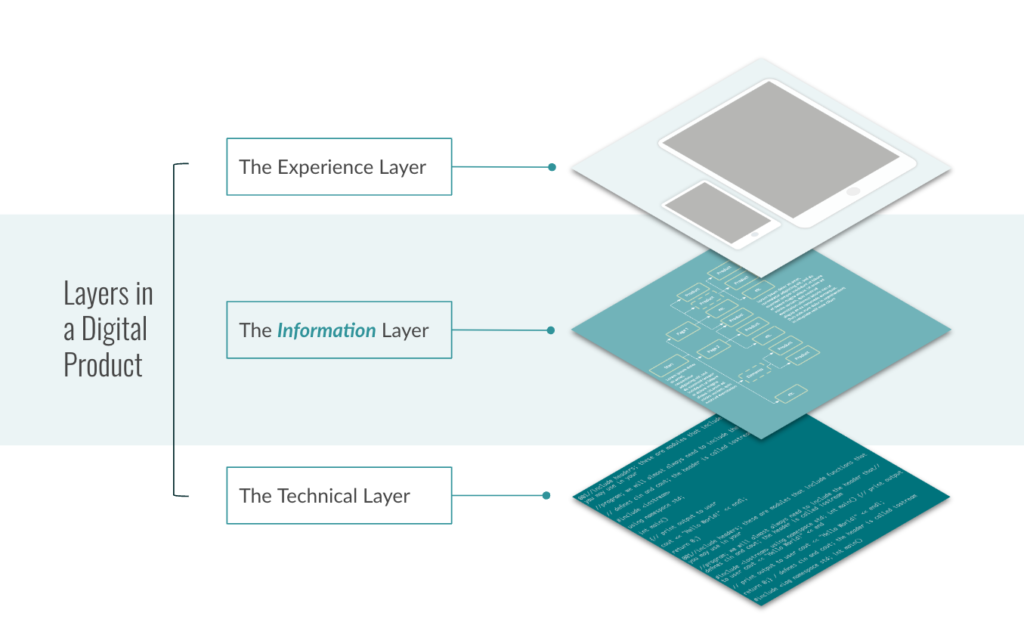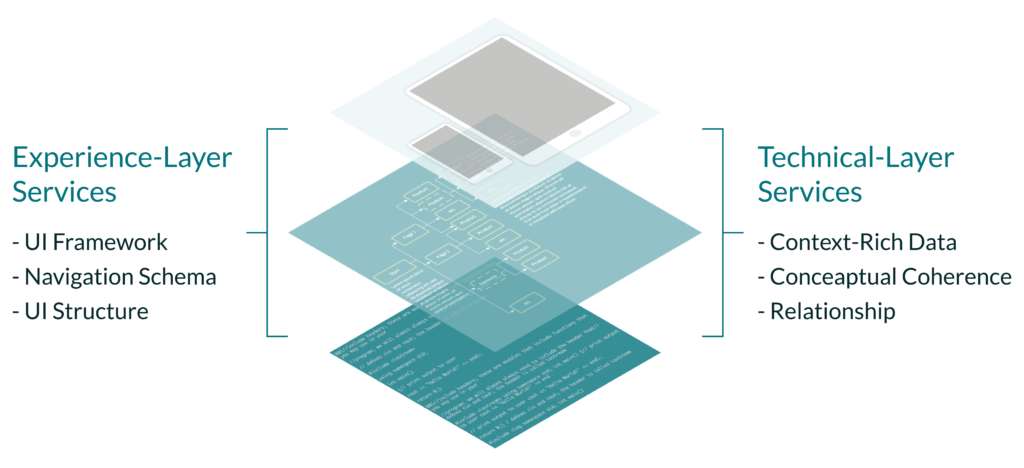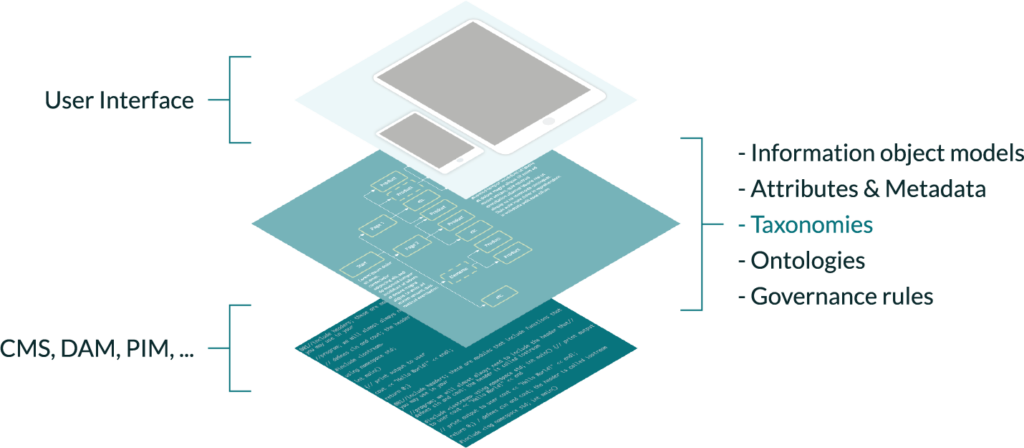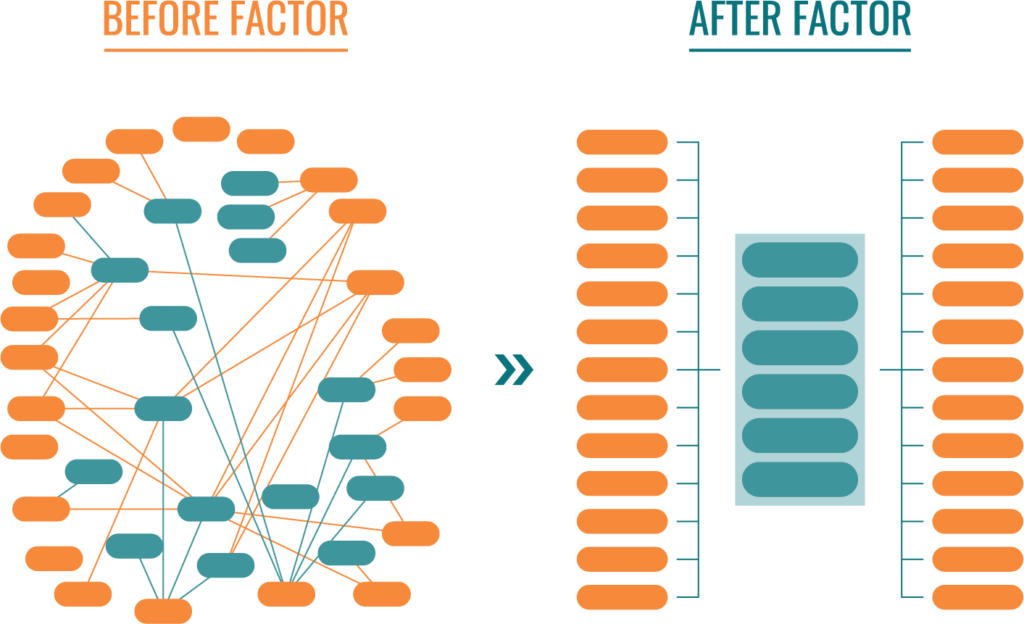
The Power of the Information Layer
By Bram Wessel & Gary Carlson
Imagine: A customer (or employee) comes to your website, app, portal, (or other enterprise platform) looking for answers to questions. Chances are you’ve invested quite a bit (millions of dollars?) to provide your users with a great experience while they search for the answers. You’ve likely worked with your design, tech, marketing and sales, customer service, and even legal teams. And probably still more.
We’re curious: When you built your new systems, did each team contribute from their own silos? With their own languages. And their own systems? Did those teams and departments talk to each other? Did you consider the answers to be a service that your company provides to the users? Have you ever considered Information as a Service? We do. And we call this your Information Layer.
The Information Layer
The Information Layer sits between and ties together your company’s Technical Layer and Experience Layer to create a more complete overall engagement-not only for the end user/customer-but also for your organization itself.
Three Layers of Digital Experience

As organizations spend huge amounts of money with marketing firms and digital agencies to build out experiences on websites, apps, kiosks, portals, digital services, and more, Factor helps clients understand that the success of the experience is fundamentally dependent on how the enterprise manages, governs, and presents its information. The Information Layer liberates business owners, business executives, and technology teams to focus directly on how customers, constituents, and users interact with, and get value from, an organization’s information.
Six Services of the Information Layer

What Role do Taxonomies Play in the Information Layer?
More and more there is an expectation that an enterprise is providing experiences that address the entire set of interactions with a company. As a result, an organization needs to be able to pull from multiple systems and data sources, which are often sitting in different business units. But there is rarely common language across those business units, which makes the desired total experience difficult…if not impossible.

The Factor Transformation
“Factor helped us strategically define our business, operational and insights outcomes across sales and marketing, and architect an information system that supports them. Using this as a blueprint, we’ve grown our taxonomy and data management practice with our business stakeholders and integrated it into the systems and processes across our enterprise. One of the best measures of success we have seen is that our business stakeholders now incorporate taxonomy and data requirements into all programs, digital projects, and marketing campaigns.”
a Fortune 50 Factor Client

The Information Layer Transformation
Outcomes – Client’s Strategic Problems Solved:
- Adopt data-driven culture
- Scalable & sustainable insights into data
- Visibility & confidence in data
- Speed to business decisions
- Competitive advantage
The Human Factor
Our work is a mix of science + human understanding, our models are derived from human experiences-the way people think, work, and engage. Many of our clients have crafted their information around product features and how to use them, while their customers are looking for information relevant to their personal experiences. We help our clients create entirely new vocabularies that model their customers’ goals, putting their products in a more meaningful context.
For more than a decade, Factor has worked with clients to identify and activate their Information Layers. With flexibility and one voice, enterprises can successfully align across systems, audiences, and workflows. By bringing this clarity, structure, and value to your enterprise information, Factor helps put your information to work.
